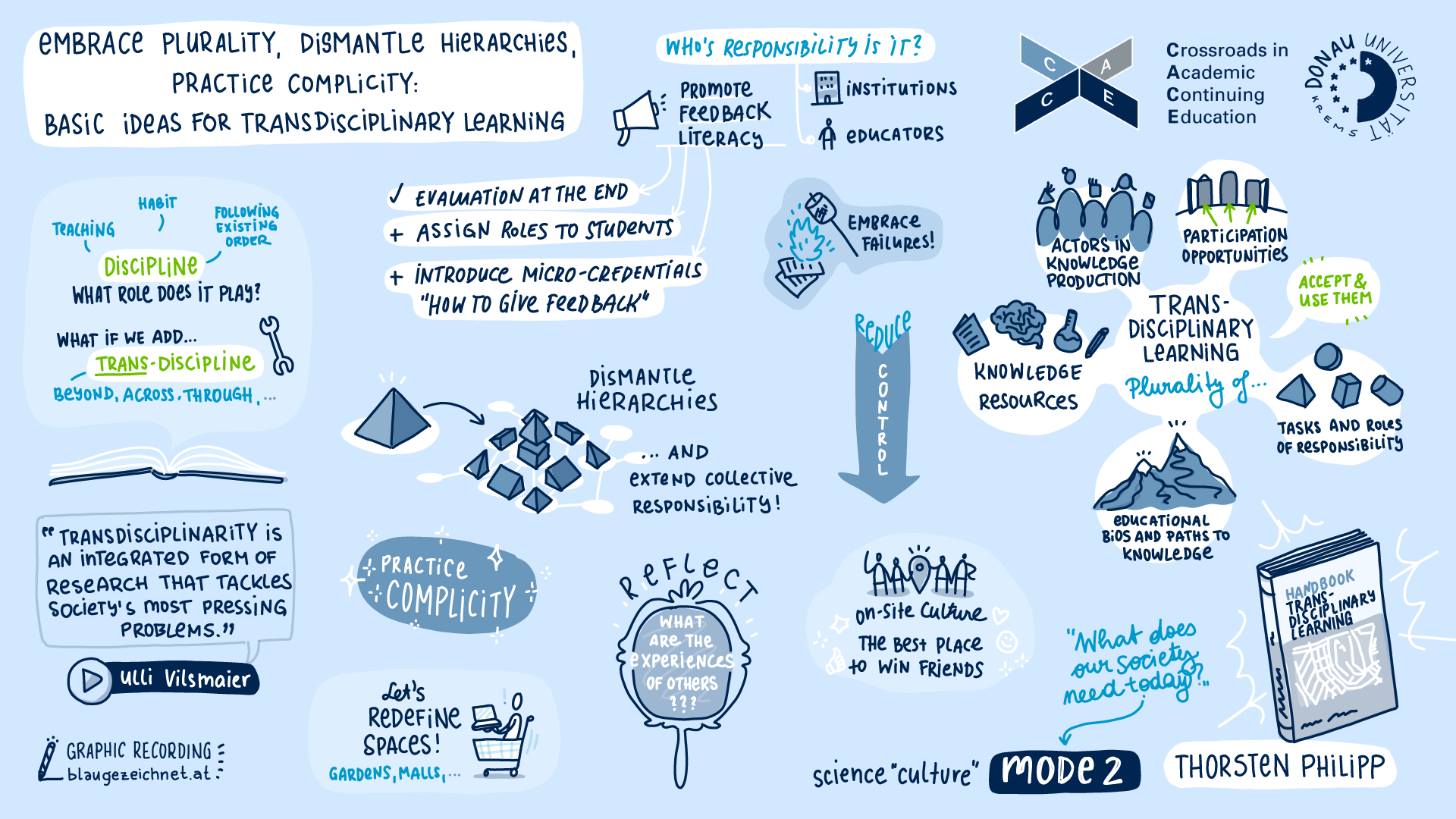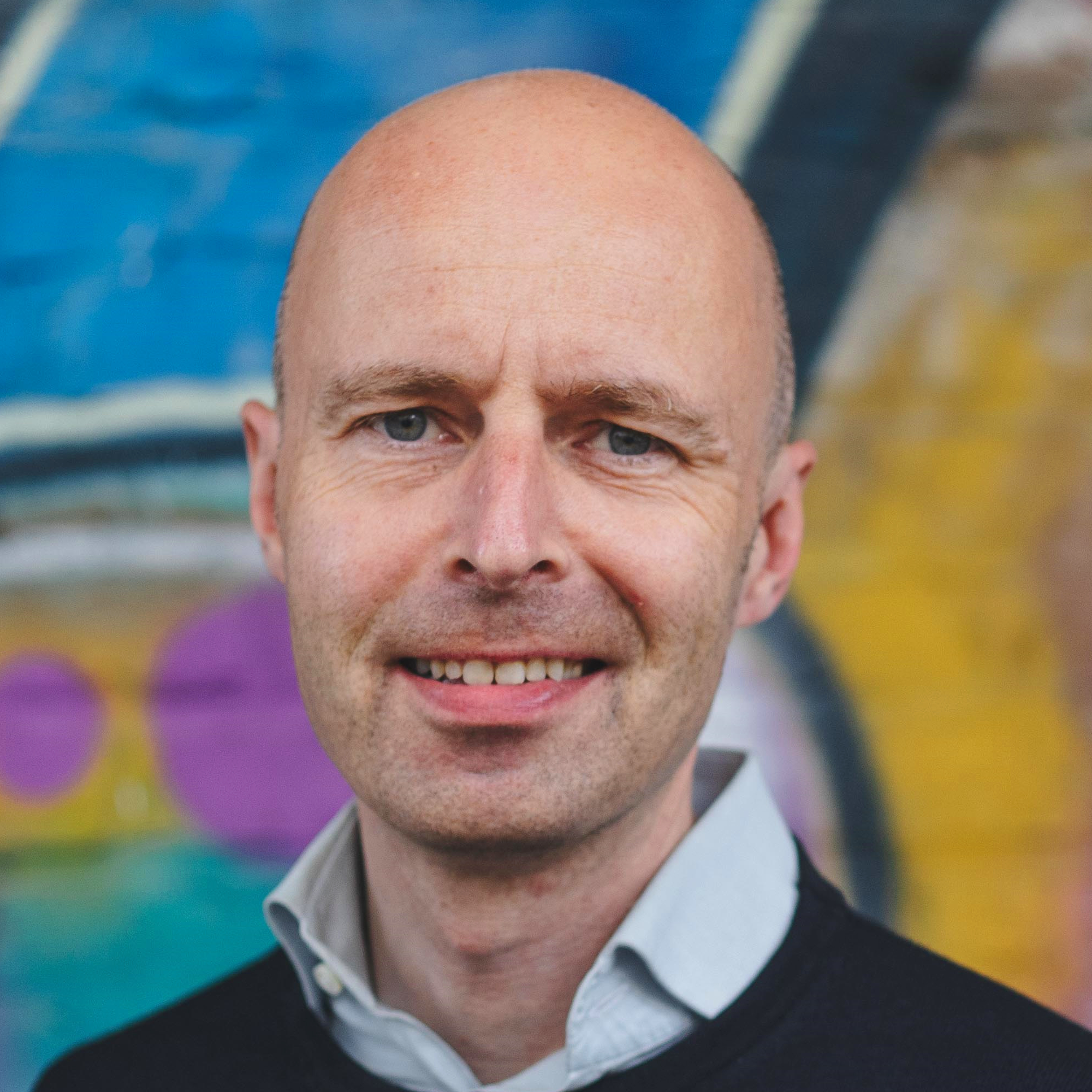
How can learning succeed beyond disciplines? Thorsten Philipp, Scientific Advisor for Transdisciplinary Teaching at the Technical University of Berlin and keynote speaker at CACE, addresses this question.
Thinking in disciplines means thinking in a certain order, he explains. It is a predetermined order, predetermined categories. The word “trans” changes the relationship to these categories and to the existing system. Transdisciplinary learning is by no means about abolishing disciplines. “Rather, it enables students to recognize and critically question the constructed nature of these categories.”
Philipp formulates five dimensions of transdisciplinary learning, which are also set out in the Handbook Transdisciplinary Learning (transcript Verlag), which he co-authored. He sees these dimensions as “an attempt to bring clarity to the requirements of transdisciplinary learning tactics”.
A central aspect is the recognition of a diversity of knowledge sources. In addition to scientific knowledge, other forms such as indigenous knowledge, experiential knowledge or body knowledge should also be given greater consideration. “This knowledge is often ridiculed as esoteric, but we can benefit from it,” explains Philipp. The diversity of actors in knowledge production must also be acknowledged. Not only scientists, but also students, artists and practitioners have the potential to make valuable contributions to research.
In addition, there are many opportunities for participation. Philipp cites citizen science as an example: in early approaches to bird research, for example, citizens were asked to observe birds and provide data. Modern citizen science projects, however, would involve the participants more - from the formulation of the research questions to the design of the studies.
Recognizing a variety of activities is also crucial. “Of course, a professor is different from a representative of an environmental association working on water ecology at Lake Constance. Both have different tasks and obligations, but both are actors in the production of knowledge.”
Finally, the expert emphasizes the importance of different educational biographies: “Detours are also paths. Bourgeois notions of 'failed careers' or dropping out of university are an obstacle to transdisciplinary thinking.” There are countless ways of acquiring knowledge outside of university structures that should not be ignored.
According to Philipp, there are numerous approaches to implementing transdisciplinary learning. Many of these are already being practiced at universities, but are often not classified as transdisciplinary. In addition to citizen science, examples of this include internships and service learning, in which teachers and students deal with real social challenges.
If teachers want to implement transdisciplinary learning, they need to rethink their control requirements. “If you want to benefit from the diversity of knowledge sources, you have to enable students to act independently.” At the same time, teachers are required to promote collaboration, reduce hierarchies and hand over responsibility. A good error culture is also essential. However, feedback skills and reflection are particularly important, Philipp appeals. His approach invites people to rethink teaching and research - beyond established categories and set paths.
About Thorsten Philipp

A scientist with a non-disciplinary agenda, Thorsten's mission is to promote academic education and collaborative knowledge production as an interplay between university, economy, culture, politics, and civil society. At Technische Universität Berlin, he supports the presidium by designing transdisciplinary learning facilities and creating experimental didactic immersion fields for students. Associate lecturer at the universities of Passau and Lüneburg, Thorsten deals in his seminars with political communication, sustainability theories, urban studies, and philosophy of science. In his research, he explores pop music as a sounding board for sustainability communication. Recent publication: Handbook Transdisciplinary Learning (2023, co-edited with T. Schmohl)